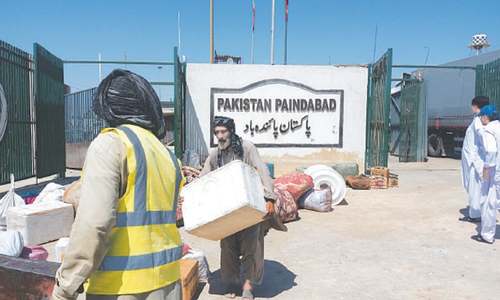KARACHI: Federal Minister for Energy Hammad Azhar thanked the Iranian ambassador to Pakistan on Friday for “normalising” electricity supply to the bordering districts of Balochistan.
“I am grateful to the Ambassador of Iran in Pakistan for promptly accepting my request and normalising the flow of electricity to the Makran division,” he said in a tweet.
Gwadar, Turbat and Makran have been facing extensive power cuts for more than a week. These areas are not part of the national grid and, therefore, rely on electricity imported from Iran. The neighbouring country curtailed electricity supply as it faces a shortage of hydel power generation.
Gwadar, Turbat and Makran are not linked to national grid and rely on Iranian supply
“In the meanwhile, we are also bringing forward the timelines of the project that seeks to connect these areas to the national grid,” said Mr Azhar.
A local source told Dawn that electricity supply from Iran hasn’t been restored fully as many affected areas continue to face hours-long power outages.
Pakistan imported 514GWh from Iran in 2019-20, which was less than 0.4 per cent of the country’s total electricity generation in the same year, according to the power regulator.
The country’s electricity generation capacity exceeds demand as the last government commissioned new power plants of almost 7,000MW in its five-year term. However, vast areas in Balochistan still remain disconnected from the national transmission network. Mr Azhar has vowed that these areas will be connected to the national grid within two years.
Earlier, in a conversation with Dawn, independent energy consultant Najam ul Hassan Farooqi said the recurring problem can only be solved once the 300MW imported coal-based power plant currently under construction in Gwadar comes online. “It’ll take at least three years to set up a 700-kilometre transmission line from Gwadar to Karachi,” he added.
One of the major reasons is the “procedural delay” in the allocation of gas to Habibullah Coastal Power, a 140MW gas-based power plant located near Quetta.
The only power plant in the area sufficient to meet the local demand stopped producing electricity in September 2019 when its gas supply agreement with the government-owned Sui Southern Gas Company expired after 20 years. The company’s power purchase agreement, however, is valid until 2029. Its validity was pegged with the reallocation of gas. The plant has been shut for 21 months as the formal summary has yet to be moved to the Economic Coordination Committee (ECC) for the allocation of gas.
Published in Dawn, July 31st, 2021
















































